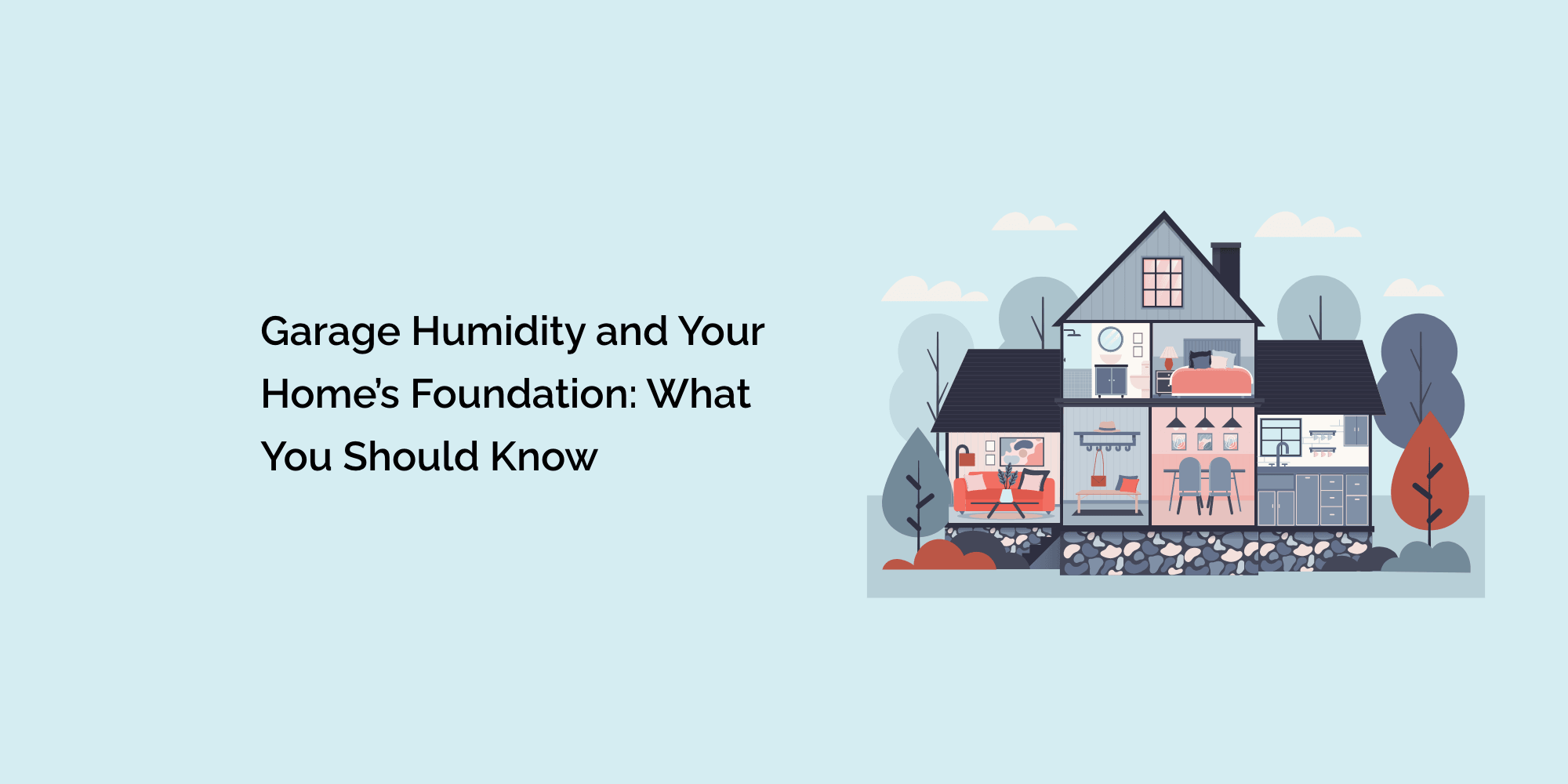Our garages serve various purposes, from vehicle storage to housing essential household items. While they often appear to be separate from the main structure of the house, garages can significantly impact your home's foundation and structural integrity. One often overlooked aspect is garage humidity, which, when not managed properly, can lead to foundation issues.
In this blog, we'll delve into the relationship between garage humidity and your home's foundation and explore what you should know to protect your property.
Understanding the Impact of Humidity
Humidity refers to the amount of moisture present in the air. When it comes to your garage and foundation, the level of humidity can significantly affect the integrity of your home. Here's why:
-
Soil Saturation: The soil surrounding your home's foundation can absorb moisture from the air. If the garage has high humidity levels, it can lead to an increase in soil moisture content. Excessive soil saturation can put pressure on your foundation, potentially causing it to crack or shift.
-
Foundation Movement: The fluctuation of moisture levels in the soil around your foundation can lead to the foundation's expansion and contraction. These movements, known as foundation heaving and settling, can result in cracks and structural instability.
-
Mold and Mildew: High humidity in the garage can create an ideal environment for mold and mildew growth. These can affect not only the garage's structural elements but also the home's air quality.
Garage Humidity and Its Impact on the Foundation
Garage humidity levels play a crucial role in maintaining your home's foundation. Here's how it affects your foundation:
-
High Humidity: A garage with consistently high humidity levels can lead to excess moisture in the soil surrounding your foundation. Over time, this can weaken the foundation and contribute to cracks or movement.
-
Low Humidity: Surprisingly, low humidity levels in your garage can also impact the foundation. Extremely dry conditions can cause the soil to contract, potentially creating voids that weaken the foundation's support.
-
Condensation: Garages without proper insulation and ventilation can experience condensation on surfaces, including the garage walls and floor. This moisture can contribute to foundation problems if not managed.
What You Should Know
Now that you understand the relationship between garage humidity and your home's foundation, here are some crucial considerations:
-
Regular Monitoring: Keep an eye on your garage's humidity levels. Invest in a hygrometer to monitor and maintain an optimal humidity range, typically between 50% and 70%.
-
Proper Ventilation: Ensure that your garage is adequately ventilated to prevent excess humidity buildup. This may include installing exhaust fans and keeping windows and doors open when possible.
-
Insulation: Properly insulate your garage to regulate temperature and prevent condensation. Insulation also helps maintain humidity levels within a healthy range.
-
Dehumidifiers: Consider using a dehumidifier in your garage to control humidity and protect both the garage and your home's foundation.
-
Foundation Inspections: Periodically inspect your home's foundation for signs of cracks or movement. If you notice any issues, it's essential to address them promptly to prevent further damage.
Conclusion
The connection between garage humidity and your home's foundation is clear. The condition of your garage can impact the moisture content of the soil around your foundation, potentially leading to structural problems. By understanding this relationship and taking proactive measures to manage garage humidity, you can help protect your home's foundation and ensure its long-term stability. A well-maintained garage contributes to the overall health and durability of your property.








